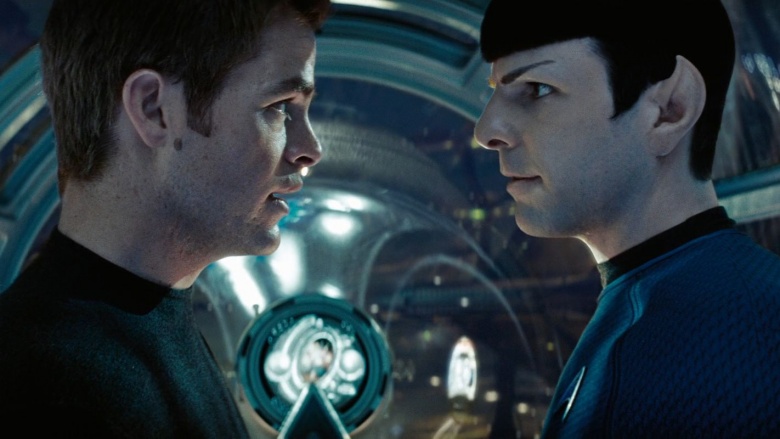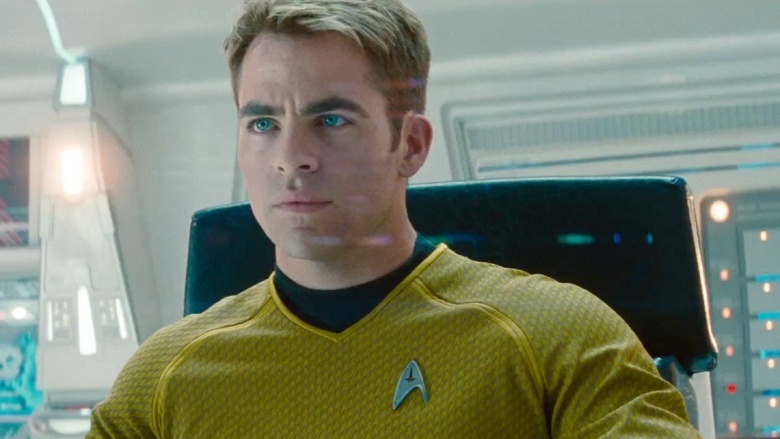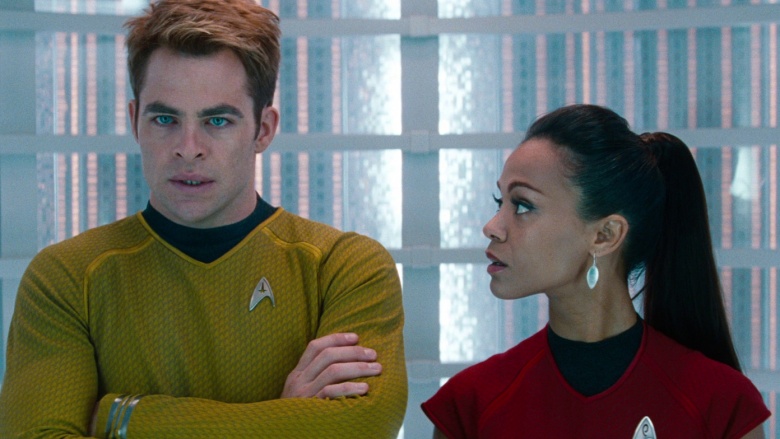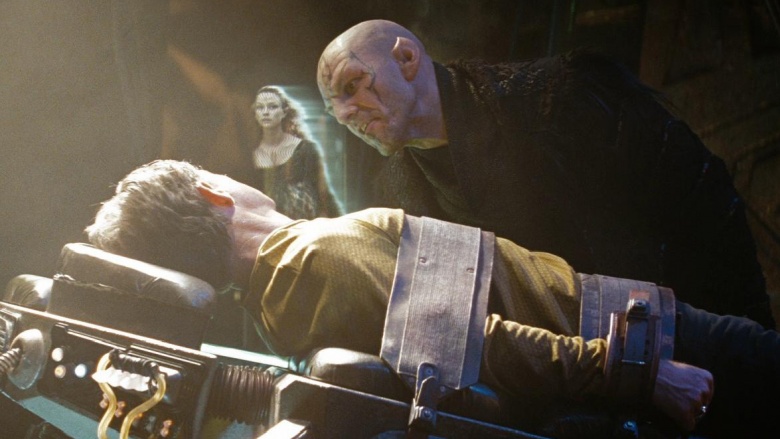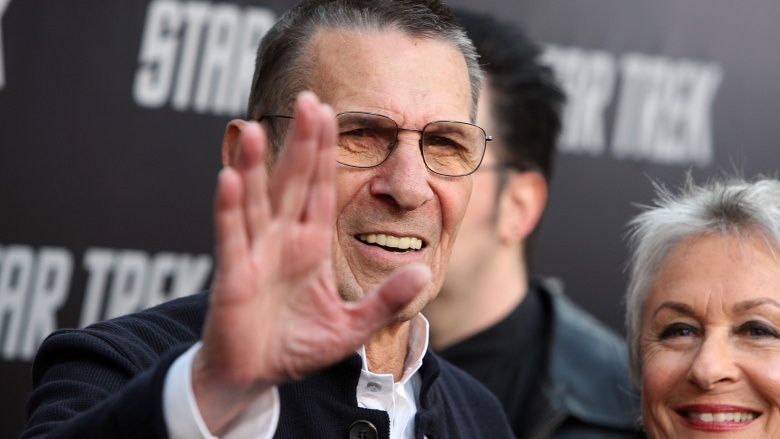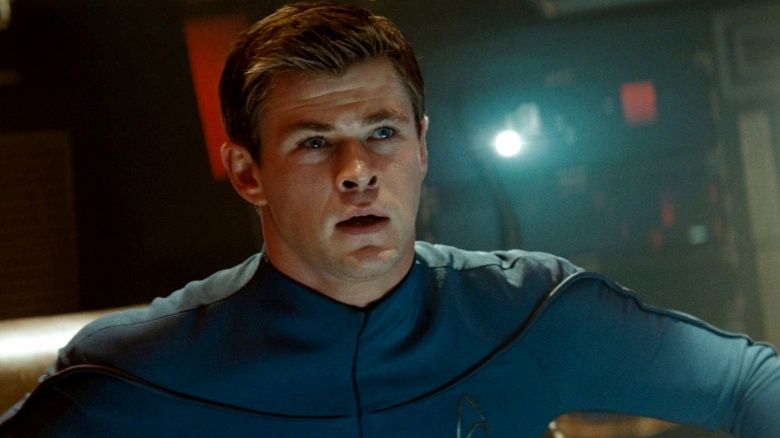Why J.J. Abrams' Star Trek Was Better Than Star Wars
Fans may be drooling over the great work that J.J. Abrams did in Star Wars: Episode VII – The Force Awakens. But those who also saw what he did in Star Trek six years earlier will be quick to tell you that everything he did on the Enterprise was way better than what he did on the Millennium Falcon. Don't believe? Here are a few reasons that should convince you—all without the benefit of a mind meld, either.
Abrams introduced Star Trek to the next generation
From the very beginning of Star Trek, Abrams makes it very clear the movie wasn't from your father's generation. The opening scene, for example, is filled with high-level CGI, intense violence, and enough emotion to make a grown man cry. Captain Kirk, meanwhile, is incredibly macho—a rebel troublemaker oozing with testosterone and charisma. Even the references to the franchise were subtle, as if to honor the legacy of Star Trek while trying to, you know, move the hell forward. In one scene, Kirk simply plays quietly with a toy model of the Enterprise; when audiences finally do see the real thing, it's from a respectful distance, rather than an in-your-face, let's-all-clap moment. By comparison, The Force Awakens leans too heavily on the original Star Wars movies to make the experience feel as fresh and exciting as Star Trek. Indeed, many of the criticisms of the movie say that the story feels too familiar and too referential to the franchise's past. That's a good way to have older generations bond with younger ones. But at times it feels way too stuck in the past, whereas Star Trek feels like a brand-new and brilliant toy.
Chris Pine carries the movie
The Force Awakens does a great job of establishing its new actors on screen; relative newcomers Daisy Ridley and John Boyega are probably sifting through hundreds of new script offers right now. But at the same time, the film lacks a commanding leading performance, an area in which Star Trek truly soars. From the moment he first appears on screen, Chris Pine completely commands your attention. At times, he's tough and rebellious; other times he's a comedic fool. It's the type of brilliant star-is-born performance that recalled the early days of, say, Harrison Ford in Star Wars. And speaking of: The Force Awakens may lack that "Who Is That Guy?!" moment simply because it gives such a big story arc to Han Solo himself. While that turned out to be a great way to honor the franchise, it unfortunately eats into the newbie actors' screen time, forcing them to wait to take the reins until the sequel. Hopefully they get the chance to do just that in Episode VIII.
There's an unexpected romance
A romance subplot can often weigh down a movie with unnecessary drama and, let's face it, bad acting. Certainly, when Pine's character first meets Zoe Saldana's, Star Trek appears to be headed down that eye-roll of a path. But Abrams and his team were smart enough to take a chainsaw to the hot guy-dates-hot girl cliche by unexpectedly setting up Uhura with Spock, played brilliantly by Zachary Quitno. The shocker romance adds even more layers of backstory and emotions to the characters, allowing the audience to truly connect and relate to them. The Force Awakens, meanwhile, leaves all that ooey-gooey stuff to Han Solo and Princess Leia, which felt too predictable and about as flat as Carrie Fisher's performance. We're not saying we want Rey and Finn to hook up in Episode VIII. But, come on, don't act like you wouldn't want to grab a drink with Maz Kanata.
The action scenes are legitimately scary
Because Abrams pays such a homage to the original Star Wars movies in The Force Awakens, the big action sequences often feel kind of cheesy in that '70s kind of way. Even worse, they feel all too predictable. The big showdown between Han Solo and Kylo Ren, for example, is easy to figure out as soon as it's revealed that Ren is Solo and Leia's son. Even the big battle between Rey and Ren is a bit of a letdown, because the only real payoff is getting to see them finally spark up their lightsabers. In Star Trek, however, the action sequences are actually quite terrifying; at times, you don't know if any of the characters are actually going to make it to the end. Seriously, how scary is that interrogation scene with Nero? To this day, Star Trek continues to surprise with big thrills and action. The Force Awakens simply looks lame by comparison.
The plot is way more intricate...
Even the biggest fan of Star Wars has to admit that the plot of The Force Awakens, however good, isn't all that complicated; not that we want to disrespect screenwriter Lawrence Kasdan, but over 50 percent of the time, The Force Awakens feels much more like a remake rather than a sequel. Seriously, how close was Han Solo to saying, "Ren, I am your father"? The plot of The Force Awakens feels especially stale when you compare it to the intense and impressive story in Star Trek. One great example: Abrams uses Leonard Nimoy's inevitable cameo as a way to further complicate and connect the plot—he appears as Spock from an alternate future—rather than just having him show up to say a few funny lines and make the Vulcan salute. As a result, Star Trek proves it respects its audience enough to tell a legitimately dense story, whereas The Force Awakens kind of just trolls its audience.
...And way more emotional
Sure, we were all grabbing for tissues when we saw Han Solo face his inevitable death in The Force Awakens. Who seriously wanted to see such a legendary character leave a beloved franchise? Still, that moment pales in comparison to the intense emotional moments sprinkled throughout Star Trek. In the first scene, for example, we watch Kirk's mom give birth to him just as his father is about to die in battle. In a later scene, Spock watches his own mother die in before his very eyes. This intense level of emotion is arguably the last thing you could've expected from a Star Trek reboot, and we love it all the more for including those moments.

